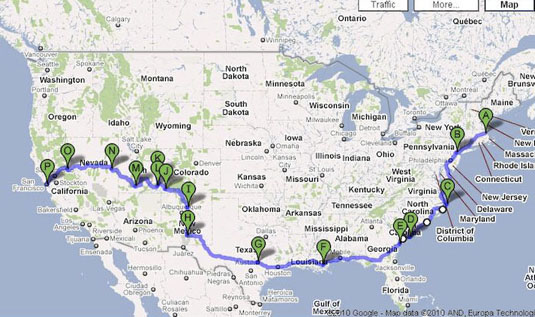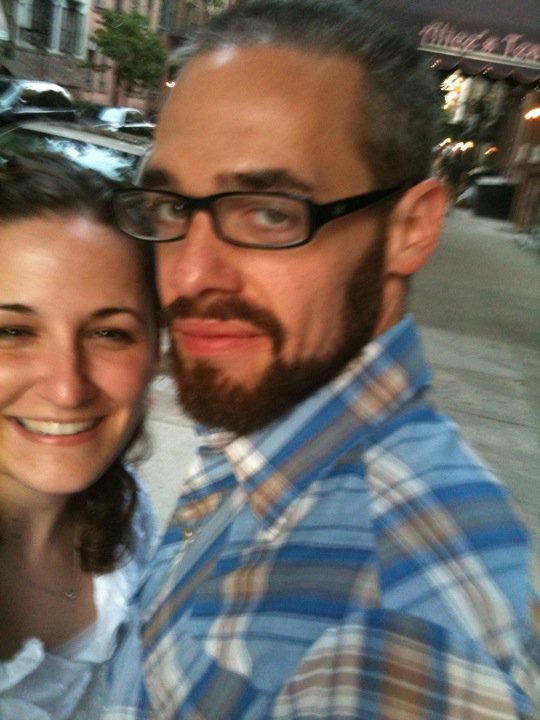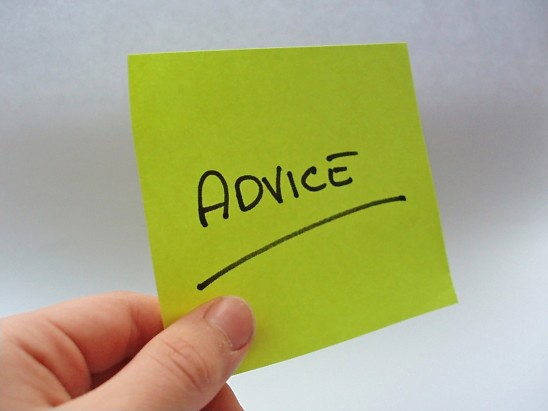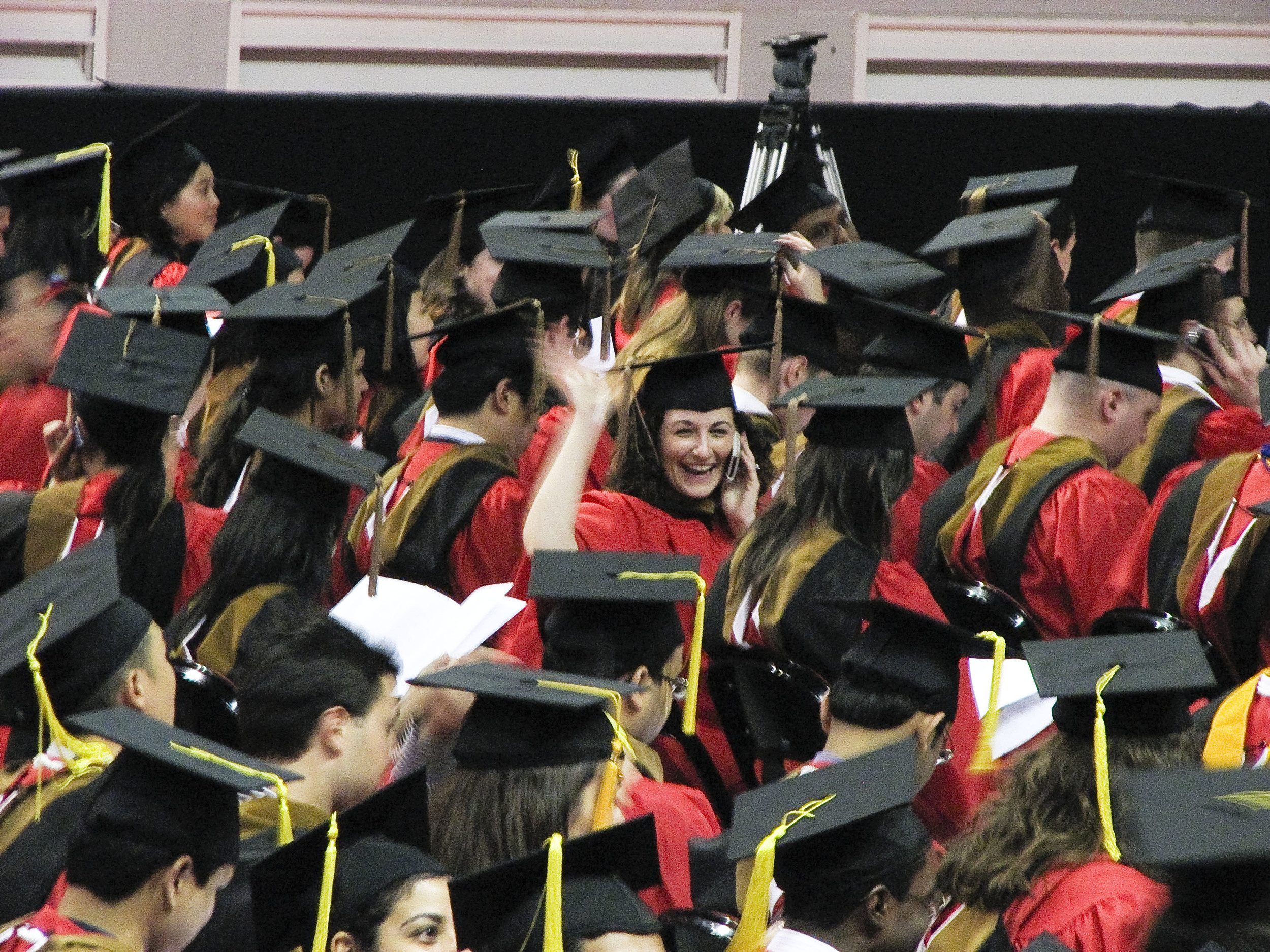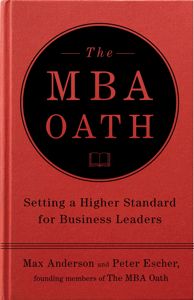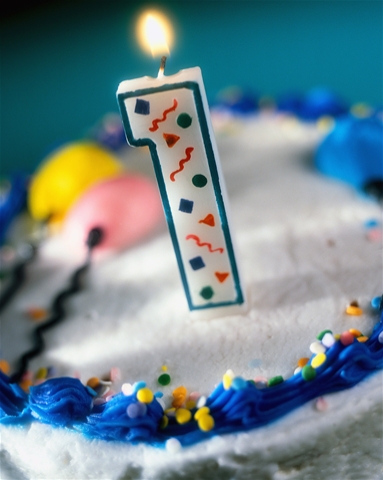 Things have been a little light on The Changebase recently, as I’ve traded my school books and CSR projects for cardboard boxes and packing tape.
Things have been a little light on The Changebase recently, as I’ve traded my school books and CSR projects for cardboard boxes and packing tape.
Yep, the Jablows are leaving Boston and heading back to the San Francisco Bay Area, where we’ll both be based while we look for jobs and get settled again on the West Coast.
As my husband Dan and I prepare to pack up our apartment, we’re trying to be as discerning as possible with what we keep and ship back West. If it hasn’t been worn, used or enjoyed in the last few months, we’re getting rid of it.
This has been a tough challenge to give ourselves (and not just because it means parting with my “favorite” clothes that I, ahem, never wear anymore).
No, it’s been tough because it’s hard to know how best to dispose of everything we no longer want.
As cliché as it might sound, I care about protecting our environment. I fret over trees being cut down to make my notebook paper; I’m vigilant about turning off my lights when not in use; and when it comes to this move, I worry that every single scrap I throw out is going to end up in a landfill (or worse, someplace like the Great Pacific Garbage Patch).
What’s amazing is just how much stuff we seem to have collected – not just since we moved to Boston two years ago, but since who knows when! The amount of paper, trinkets, clothing and other items we’ve managed to accumulate is staggering.
In an effort to be responsible movers, we’ve taken a proactive approach to ensuring that as little as possible actually ends up as trash. Here’s how:
First, we were lucky to have access to basement storage where we could save all of our cardboard boxes from our last move. So, no new boxes – which is great.
Next, when it comes to determining what goes in those boxes, we sorted everything into three categories: “Keep, Donate, or Sell.”
For donations, our main go-to is the Goodwill. As you probably know, all new or gently used items donated to Goodwill are sold in their retail stores to support community initiatives that help people in need.
Beyond Goodwill, Dan and I recently discovered Buffalo Exchange as another place to donate and sell our clothes. We brought in a bunch of stuff to our local Buffalo Exchange the other day – some of it got bought by the store (which earned us a store credit and some cash) but most of it got donated, in this case to a local epilepsy society. The coolest part? When we used our store credit but said no to a plastic bag for our new items, the store gave us 5c to donate to a local charity of our choosing. Might not seem like a whole lot, but it turns out this “Tokens for Bags” program has led to almost $358,000 donated to local nonprofits since 1994 and saved 7.2 million plastic bags. And it definitely left us feeling the warm fuzzies.
For other donated items beyond clothes and accessories, we’re just starting to try out Freecycle. Started in 2003 in Arizona, Freecycle keeps everyday items out of landfills and puts them into the hands of happy freecyclers. Simply sign up for your local chapter, browse current listings to see what people are giving away, or put up an ad for something you no longer want. In just one day, I’ve seen postings for TVs, tennis rackets, baby toys, even couches! By their estimates, the Freecycle program is keeping 500 tons a day out of landfills.
Besides donations, we’re making good use of for-sale sites like Craigslist and eBay for our furniture, electronics, and other household goods. After all, why not make a little money to pay for our upcoming cross country road trip?
While we’re trying to be smart about finding new homes for our things here in Boston, I still deal with a nagging uneasiness around what happens when we get to California. Selling our couch in Boston means it won’t go to a landfill, but eventually we will need something to sit on in our new apartment out West. Which leaves me wondering:
How can we not only responsibly dispose of things now, but also responsibly consume in the future?
I don’t think there’s an easy answer to that question because, in many ways, consumption is a necessary evil. We all need beds to sleep on, clothes to wear, and food to eat. That said, how much more do we need?
At the end of the day, I do think it’s about being conscious with our purchases and not just blindly handing over our credit cards. It’s about understanding our options for buying new versus used, and making use of sites like Freecycle or eBay to help us find hidden gems.
Ultimately, it’s about prioritizing what we really need over what we really want.
This doesn’t have to mean sacrificing our comfort for the sake of sustainability. But it does mean putting in a little extra effort and research to make smarter purchase decisions.
I’m very aware of the irony of donating or selling everything now, only to go out and buy it again later. And yes, some of that may happen. But I’m also going to do my best to be more of a conscious consumer going forward and make smarter, more responsible choices.
I encourage you to take a look around your home or apartment sometime and ask yourself: how much of your stuff is really necessary? Maybe it’s time for a little spring cleaning?
